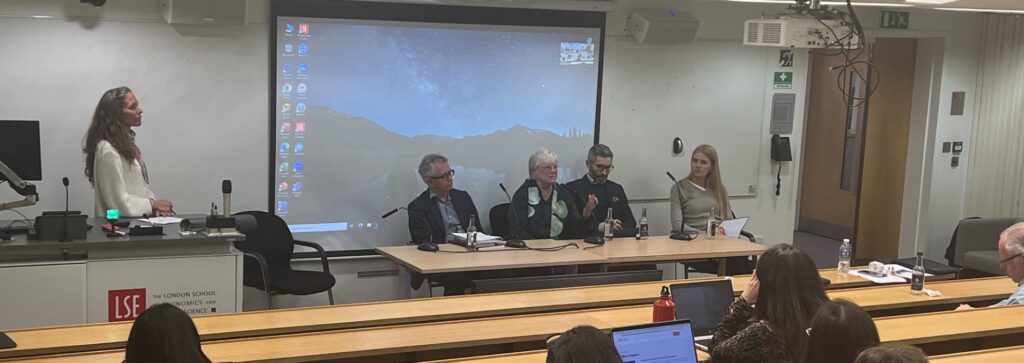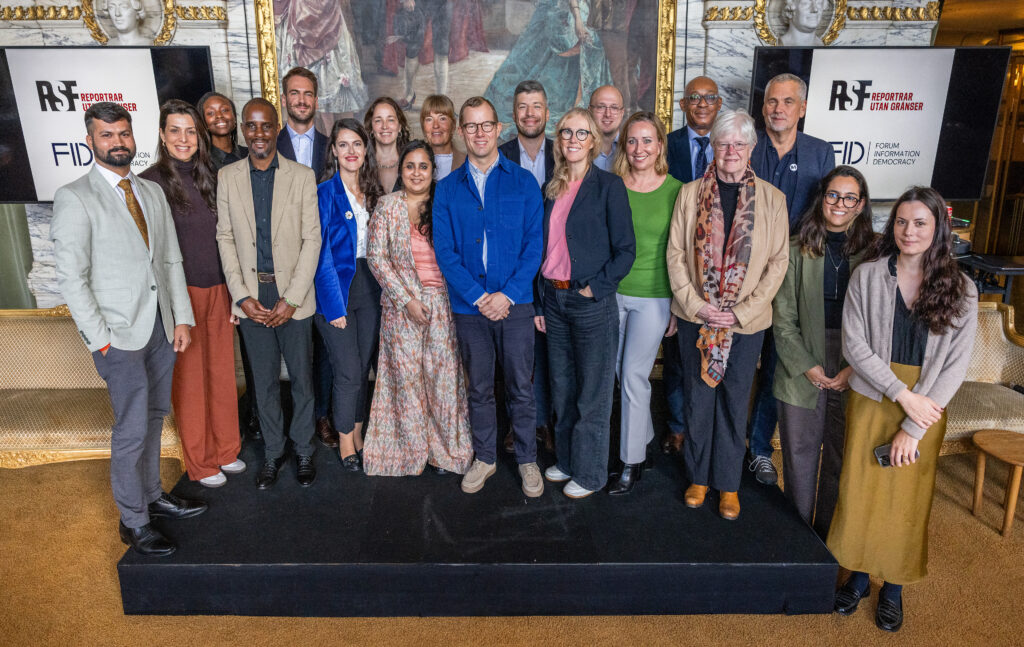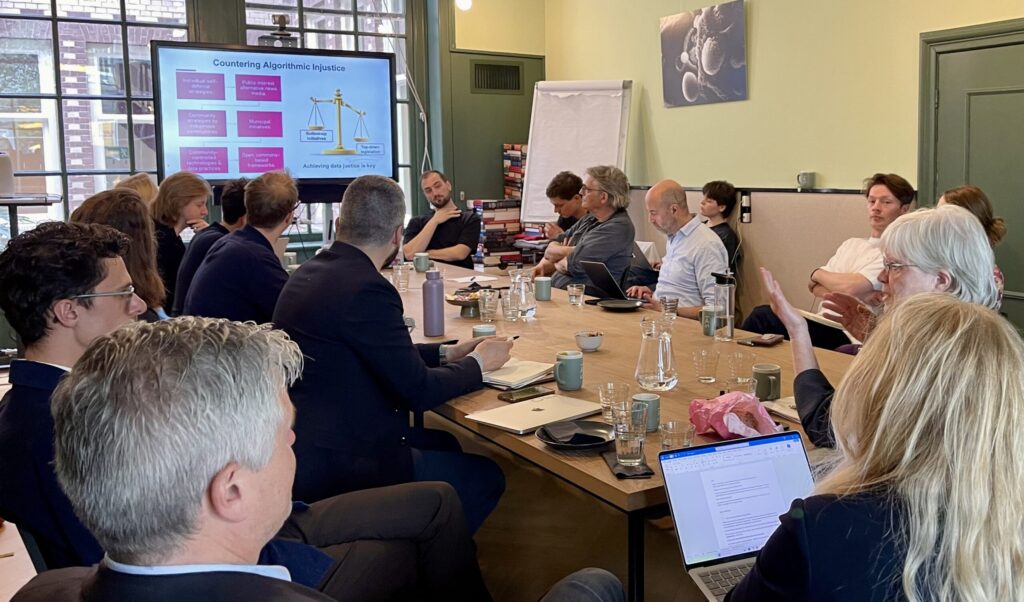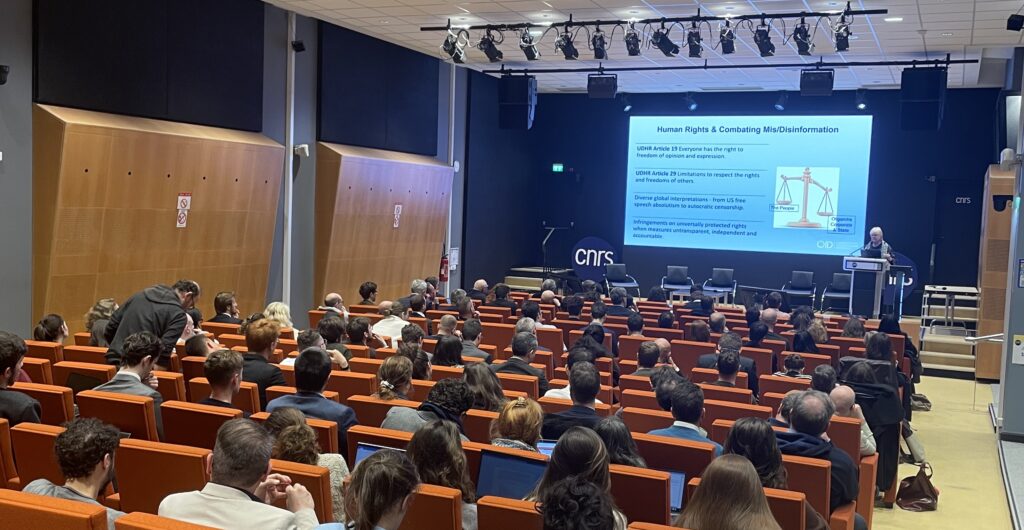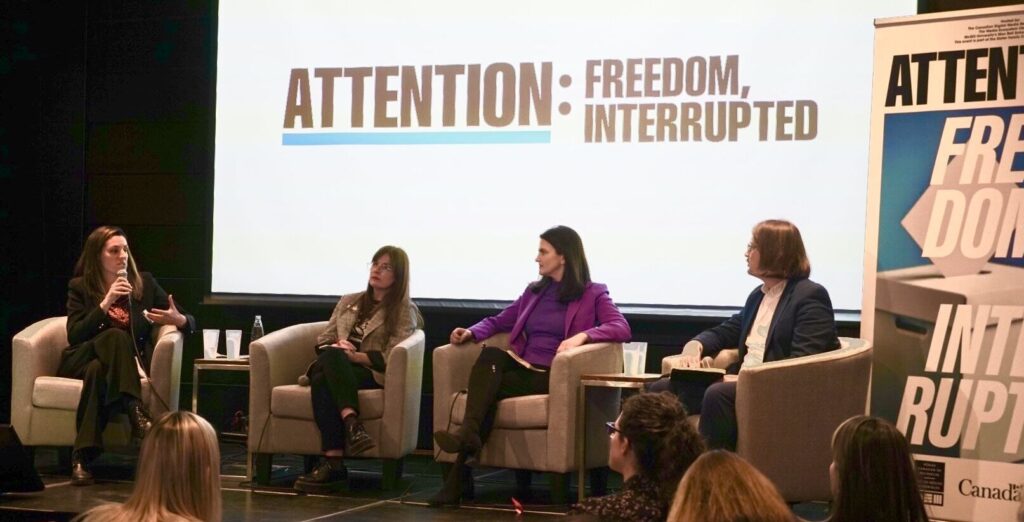On Thursday, 20 March 2025, the Observatory on Information and Democracy hosted a pivotal event at the London School of Economics (LSE) to explore the intersection of information integrity, media ecosystems, and democracy in the digital age. Centered around the findings of our landmark report Information Ecosystems and Troubled Democracy: A Global Synthesis on News Media, AI, and Data Governance, we explored a critical look at how modern technological and informational landscapes challenge democratic values worldwide.
Key Insights from the Event
The event was introduced by the Forum’s policy officer Emma Gruden who presented the organisation’s mandate and the Observatory’s mission and ambition. It was followed by a lecture from Professor Emeritus Robin Mansell on the report Information Ecosystems and Troubled Democracy, based on her role of Scientific Director of the Observatory.
The landmark report co-authored by Matthias Kettemann and others, offers an in-depth analysis of the available evidence around the global rise of online disinformation and the increasing destabilization of democratic structures. It outlines the significant role of news media, artificial intelligence (AI), and data governance in this phenomenon emphasising the complexity of these phenomena.
At the LSE event, we had the pleasure to have a distinguished panel of experts discussing the report’s findings and engaging in lively conversations on how to respond to the present challenges. How can we safeguard democratic and information integrity in an era dominated by digital technologies?
Among many attendees, the event was supported by Professor Sonia Livingstone and our report was discussed by prominent voices in media and communication studies:
- Robin Mansell, Professor Emerita at LSE, and Scientific Director of the Observatory on Information and Democracy, provided an overview of the key findings from the report.
- Matthias C. Kettemann, Professor at the University of Innsbruck, presented the legal implications of data governance in relation to media ecosystems.
- Nick Couldry, Professor at LSE, served as the discussant, raising critical questions on the ethical dimensions of AI and its impact on information flows.
As a part of the event, attendees were given the opportunity to engage directly with the panel, discussing potential regulatory frameworks, international cooperation, and technological solutions to combat the threats posed by online disinformation. The conversation centered on ensuring media literacy, transparency in algorithmic systems, and the importance of public policy that aligns with democratic values.
The event also highlighted the importance of multi-stakeholder collaboration in addressing the challenges of AI-driven disinformation and data governance. As global citizens, we must work together to ensure that the principles of truth, accountability, and democracy are preserved in the digital age.
As we continue to reflect on the event, we remain inspired by the thoughtful dialogue and the collective commitment to ensuring a healthier future for our democratic institutions in the face of rapidly evolving digital landscapes.
